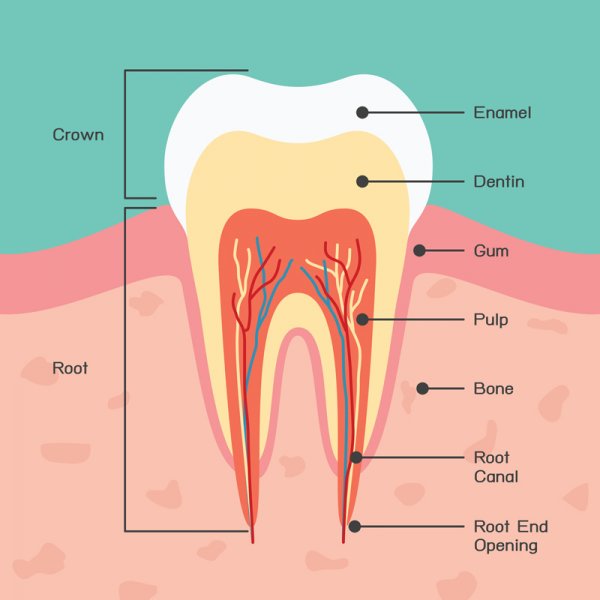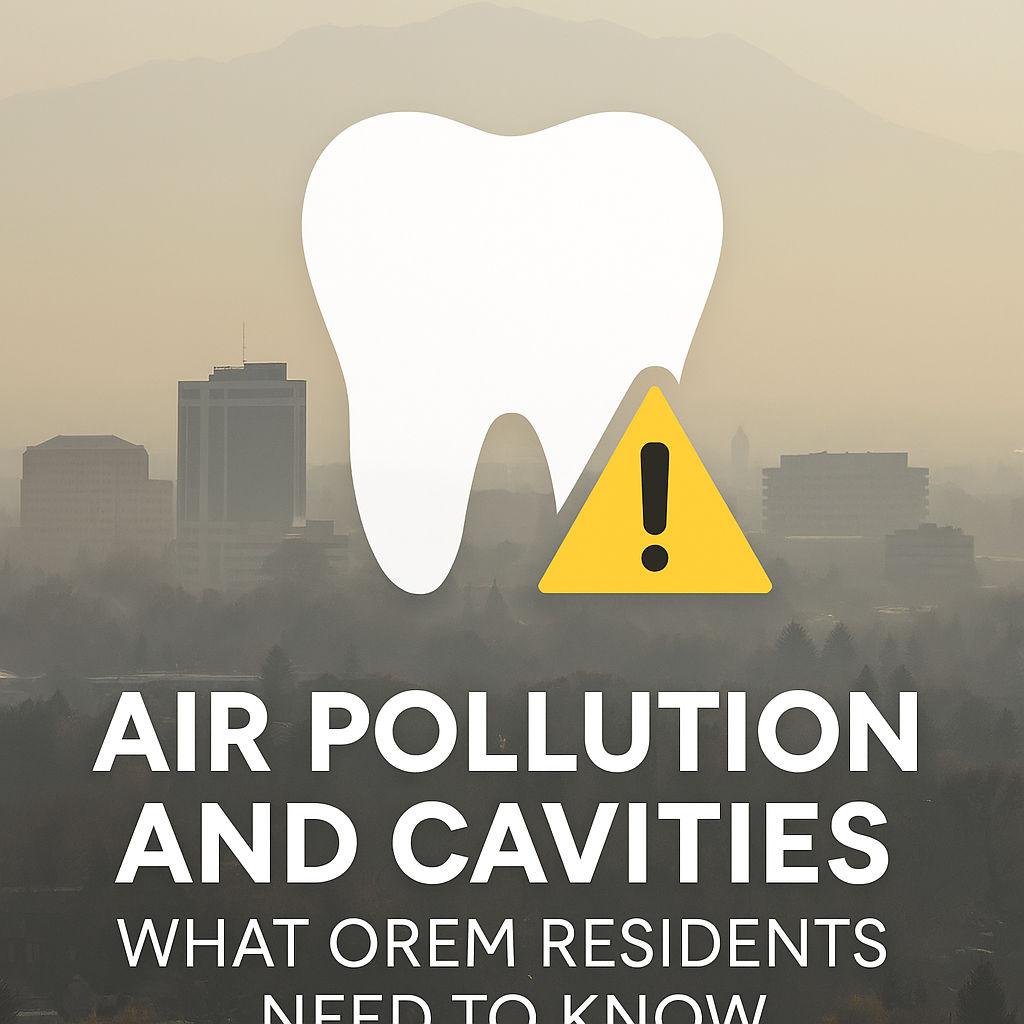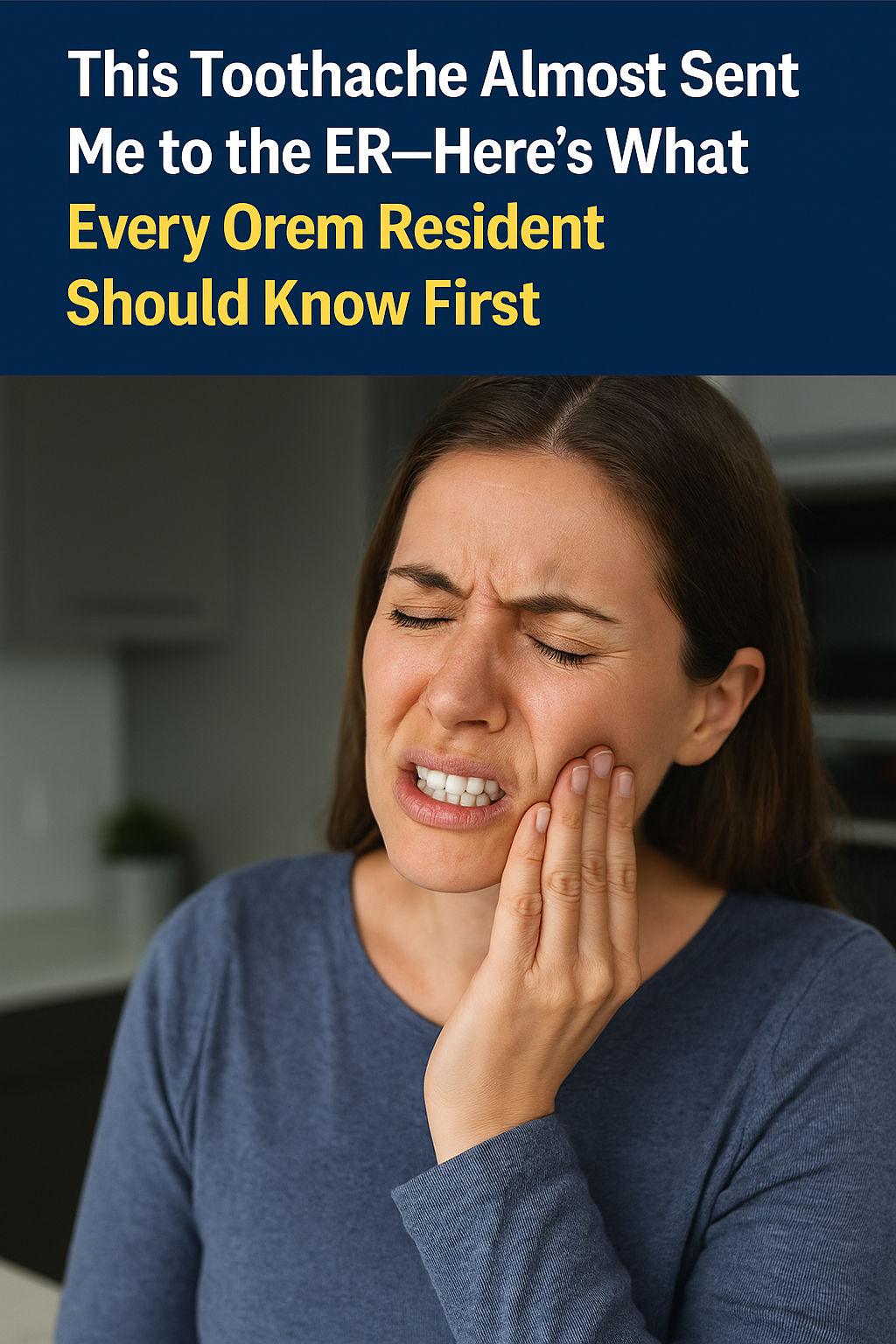This question sends shivers down the spine of every dentist in the world and it’s something all of us have heard a few times from our patients. With full transparency, I will admit that I heard it from one of my patients last week. It’s a question that I spend a great deal of time, effort, and money (on the best materials) to avoid in our Orem, Utah dental office.
So why do teeth hurt sometimes after a filling or crown preparation?
To understand the answer to this, it would help you to know a little bit about tooth anatomy. Teeth are composed of three layers, the outermost being enamel. Enamel is the hardest substance in the body and it acts like a suit of armor around the visible portion of the tooth. It is non-living, extremely strong (even if kind of brittle as well), insulating, and able to take quite a bit of abuse before breaking down. Inside the enamel you find the dentin. Dentin gives teeth their yellow hue and is similar in hardness to bone. The most notable thing about the dentin layer are the millions of pores or channels inside of it which lead to the pulp layer. Although it is non-living like enamel, irritants inside this layer can be felt because of these pores. In the very middle of each tooth is the pulp layer. This is a soft layer composed of nerves and blood vessels and it is the reason toothaches exist. The pulp plays a vital role in tooth development and without it we would have no teeth, but in a mature, fully-developed tooth it really only serves the role of torturing us at inconvenient times. I have always maintained that tooth nerves are the stupidest parts of our whole body and they only do one thing well—send pain signals. I suppose if you want to nitpick, tooth nerves serve the role of an early alert system that informs us when something is starting to go wrong, but this is not always a reliable protocol; sometimes very little things can cause these stupid little nerves to go nuts. The last thing you need to know about tooth anatomy is how your tooth stays in its bony socket. Millions of little ligaments, just like those in your knee, hip, and shoulder joints, attach the root surface of your tooth to the bone. There are some nerves inside this ligament area as well which serve to tell you when you’re biting too hard on your teeth by sending—you guessed it—more pain signals to your brain.
Now to answer the question. If you just had a crown or filling done and you’re still pretty sensitive even after a few days of waiting, there are several reasons why this might happen:
- High spot on your bite. This is the most common reason for prolonged sensitivity. It results from the ligaments holding the tooth in the socket being compressed more than they would prefer. Some people have a hard time detecting if they are biting normally when their teeth are numb. This is one of the first things I check when patients come in with a toothache after dental work. I use a thin carbon ribbon to mark the high spot and then make necessary adjustments. In most cases, the difference in how the bite feels is obvious and the tooth becomes comfortable again very quickly.
- Reversible Pulpitis. This refers to a pulp that is bothered, but able to heal itself completely if the tooth is given a little care. Imagine that you had a surgery on one of your bones; wouldn’t you expect to be sensitive for several days, especially if your bone remained in function during the healing period? So it is with teeth; the pulp is composed of living tissue that might feel a bit traumatized for a while after working on a tooth. The dental drill creates a lot of vibration and heat (even though we use water to keep it cool) which can bother the dental nerve. Another important consideration is that aches and bumps elsewhere on your body are able to expand a little bit during the inflammatory process that comes with trauma. Teeth nerves live within confined spaces and are not able to expand much at all. This limited room for inflammation leads directly to pain. Most of the time a tooth will calm down if you give it a couple days or weeks and try not to chew on it.
- Irreversible Pulpitis. Sometimes the pulp of a tooth can become so irritated that it begins to necrose or die. Most of the time this happens when a filling or crown is very close to the nerve. Microscopic bacteria might be bothering a tooth already but this can be undetectable to a dentist unless there is some kind of indicator such as a soft spot, color difference, etc. If a filling or crown gets close to the pulp, a dentist might be faced with a judgment call of whether to place a filling with a pulp cap (treatment designed to keep a tooth happy and living) or initiate a root canal. I feel that 95% of the time I get this decision right, but sometimes teeth do funny things and turn South in spite of heroic efforts to save them. Teeth that have irreversible pulpitis start hurting or throbbing spontaneously at random times. They often wake patients up in the middle of the night and may be exquisitely tender to cold things. Teeth with irreversible pulpitis require root canals to make them feel good again.
- The hardest thing of all to diagnose in my opinion are teeth cracks. They are often the result of grinding, but also might happen if a tooth has a large filling. Most of the time they cannot be seen easily and many times they are diagnosed by symptoms rather than any visual cues. These teeth usually hurt when biting on them, but may have no other symptoms whatsoever. Cracked teeth will often require a crown to repair and severely cracked teeth may need a root canal as well.
In conclusion, please understand that if you ever experience this situation, as your dentist I am just as frustrated and stressed out by teeth as you are. Dr. Payne and I take great pride in how we take care of our patients and go to great lengths to ensure that your treatment is perfect. We are always available to be reached by our patients and we are willing to whatever is necessary to help you feel comfortable, especially if your discomfort stems from treatment that we have done. Even though I don’t like to hear it, I am grateful to patients who ask me this frank question because it indicates a level of trust that I will be able to help them. I hate the thought that some patients are probably willing to “tough it out” rather than come to the office and figure out why a tooth is still tender after dental treatment.
-Nicolas K. Young, DMD







